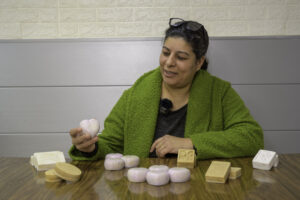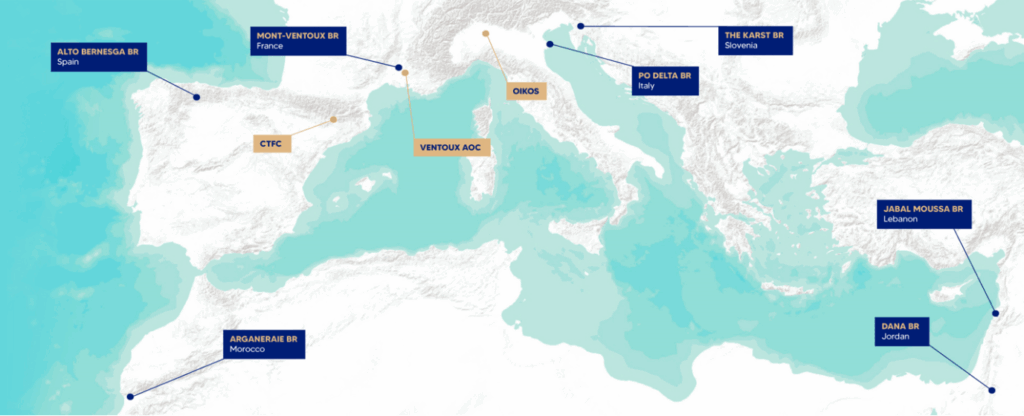Youth and decision-makers together for a more sustainable future
New energies to tackle the climate challenges of the 21st century
Through its policies, the European Union is committed to fighting climate change, but that alone is not enough. To ensure that these measures are effective and have a real impact, active public involvement is essential, especially from young people.With Power Up!, we have an ambitious mission: to transform young Europeans in Italy, Slovenia, and Bulgaria into key players in the decision-making processes related to climate policies. We do this through theoretical and practical trainings, active engagement initiatives, and the promotion of inclusive climate governance.
Training and activation: the heart of the project
Thanks to our network of partners, we engage 750 young people in educational activities at both national and international levels, including climate awareness workshops, leadership training, advocacy activities, and international exchanges.In Italy and Slovenia, students participate in National Youth Workshops—training days focused on understanding climate change, local and European environmental policies, and developing advocacy and public speaking skills. These topics are also addressed during a National Youth Training Camp in Bulgaria: a three-day experience that emphasizes training and youth collaboration.
Beyond borders: international events
The project fosters connections among young people from partner countries. An international workshop in Kyustendil, Bulgaria, is designed to delve into youth empowerment and participation in European policies through a simulation of the United Nations Economic and Social Council. This is followed by an online training event on advocacy and leadership, open to all young Europeans, and a Youth Summer Leadership Camp in Slovenia, offering participants a unique opportunity to engage in a COP simulation, stepping into the shoes of real leaders.
Collaboration between youth and decision-makers
The dialogue between young people and policymakers is at the core of Power Up! We collaborate with local institution representatives and international professionals to facilitate a mutual exchange of experiences and knowledge.In Milan, a group of 100 students, together with the city’s municipality, initiates a pilot project: the Youth Climate Assembly, which concludes with the presentation of a Resolution Report to the Permanent Citizens' Assembly on Climate. The Assembly is a civic participation body established by the City of Milan two years ago to give citizens a voice in activities related to combating climate change, improving air quality, and promoting ecological transition. Our goal is to gather insights into young people’s expectations, perspectives, and ideas, and integrate them into the work plan of the Permanent Citizens' Assembly on Climate.Similar actions in four other European cities enable young people to participate in consultation and deliberation processes, actively contributing to decisions on climate and energy transition.
A network of cities for citizen participation in climate policies
We believe that exchange is key to facilitating mutual learning among European municipalities. Together with the City of Milan, we are building a digital platform and organizing a series of eight webinars for 150 participants, including institutional representatives and public authority professionals. This will be followed by a two-day International Forum in Milan, where experts and professionals can deepen the topics discussed online, enhance youth engagement strategies, and share their experiences.
Dissemination and sharing
An international conference in Bulgaria will be an opportunity to present results and best practices to educational institutions, civil society, and local authorities, while in Milan’s schools and youth centers, we will organize peer-to-peer initiatives to raise awareness about climate change and disseminate information on the most useful participation tools and platforms.An important exchange opportunity will be the International Youth Summit, with 150 participants, including students, stakeholders, and international guests. At the end of the Summit, the voices of the youth will converge into a single document, which will then be shared at the European level.
Power Up! is a project by Istituto Oikos, realized with the support of the European Union and in collaboration with WWF Bulgaria, No Excuse Slovenia and the Milan Municipality.
The launch event (WP1)
The international launch of Power Up! brought together 83 participants from 4 different countries, including 44 women and 39 men. Over the course of two impactful days, partners strengthened collaborations, shared best practices, and delved into the core themes of the project.
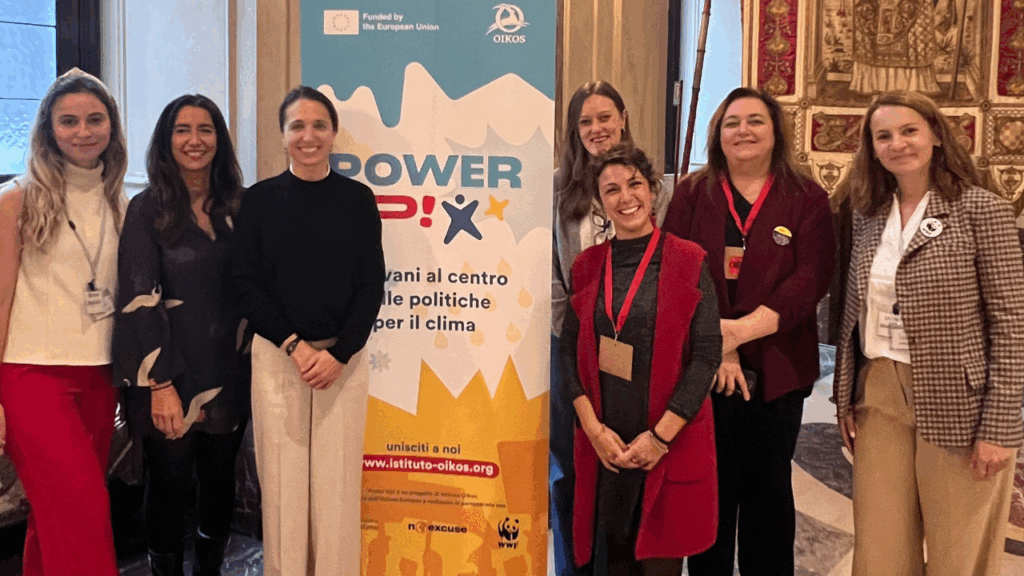
An exchange of experiences
The first day focused on dialogue. The exchange of experiences among partners, enriched by the contribution of Katie Reid, an international expert in youth participation, explored innovative and inclusive methodologies to raise awareness among younger generations on environmental and climate issues. The combination of theoretical and practical training on participatory tools and processes led to the development of the Training of Trainers Toolkit (ToT toolkit), a practical guide to support partners in designing the project's educational activities.
Dialogue with institutions
The second day highlighted the importance of interaction between citizens and policymakers. Partners attended the presentation of Milan's Permanent Citizens’ Assembly on Climate, a unique model that fosters civic participation in local decision-making processes. During the session, Power Up! was introduced to citizens, journalists, and institutional representatives, including Milan’s Mayor Giuseppe Sala and Councillor Elena Grandi. Participants also had the opportunity to observe the Assembly's dynamics firsthand, gaining deeper insights into the value of citizen involvement in shaping effective climate policies.
Dissemination and next steps
To expand public engagement, the project was promoted both online, through the partners’ social media channels, and offline, with a dedicated event in one of the participating schools. Power Up! continues its mission to foster active participation and awareness on climate change and the ecological transition.
National Youth Workshops in Milan, Italy (WP2)
Power Up! has made its way into Milan’s high schools with a clear goal: to raise climate awareness among younger generations and to spark active participation and critical thinking.
The educational program engaged 191 students — 96 boys and 95 girls — from 9 classes across 5 of the city’s 9 municipalities. A series of three sessions guided participants through theoretical concepts, hands-on activities, and moments of reflection and discussion.
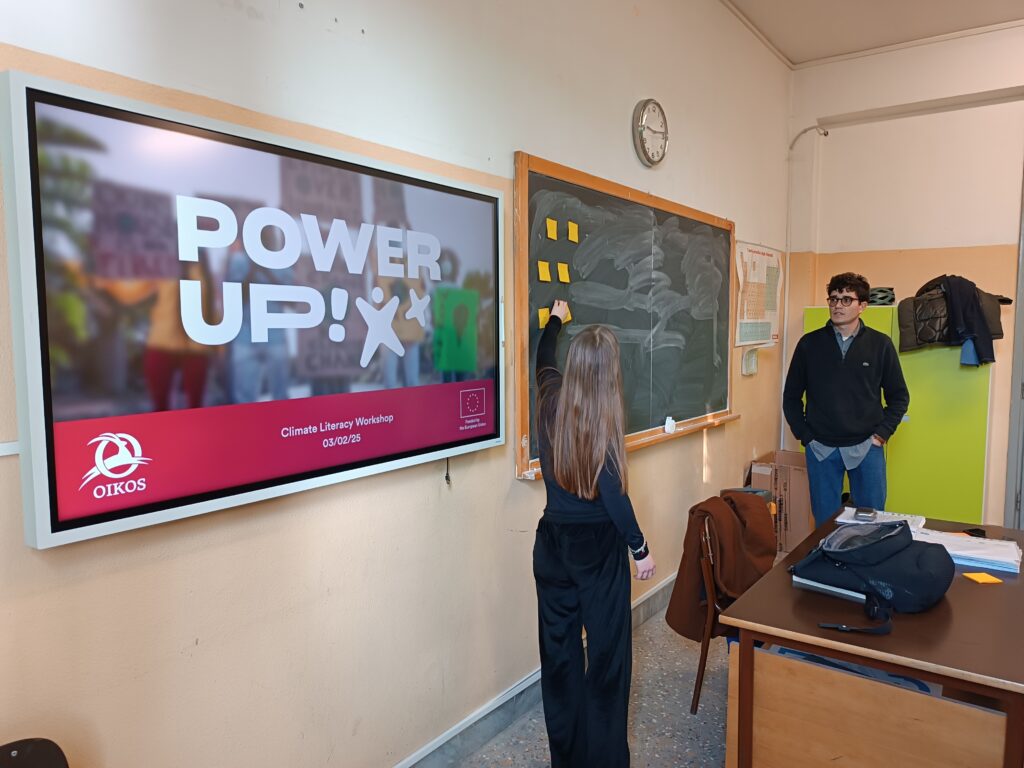
You need to start with a solid foundation
That’s why two hours of the program were dedicated to climate literacy. Beginning with a collective brainstorming session, students explored the causes and consequences of climate change, then dove deeper into the concepts of mitigation and adaptation.Finally, the focus shifted to an often-overlooked aspect: climate justice. A video and a role-playing game helped students understand how the environmental crisis often translates into social inequality.
The roles are reversed
During the second session, it was the students who took the teacher’s seat. Divided into groups, they presented climate policies in place at the international, national, and local levels, along with individual actions that can help address the crisis.
Next came a role-playing game based on data from IPCC reports (Intergovernmental Panel on Climate Change), which launched the entire class into the future. Working in country teams, students chose which climate policies to adopt, and based on their decisions, they discovered the possible scenarios our planet could face over the next 75 years.
To wrap up, representatives from the Municipality of Milan presented the Plan for Air and Climate, giving students a closer look at the decisions shaping their local area. They also introduced the participatory process that will involve them in the coming school year through the Youth Climate Assembly.
Making your voice heard
In the third and final session, a young volunteer from the Italian Climate Network shared her experience at the Conference of the Parties (COP), offering a firsthand account of youth engagement and contribution to international climate policy.The program concluded with a structured debate, where the class tackled two thought-provoking questions that brought together many of the topics discussed: "Is mitigation the real solution to the climate crisis?" and "Can local actions truly make a difference?"
Education, participation, future
The school workshop gave students the tools to understand the climate crisis in all its complexity and created spaces for dialogue where they could practice critical thinking and civic engagement.
But the work doesn’t stop here. Activities with students will continue next year: thanks to the support of the City of Milan, around 90 young people will take part in establishing the first Youth Climate Assembly — a concrete experience of active citizenship that will give the next generation a voice in local environmental decision-making.
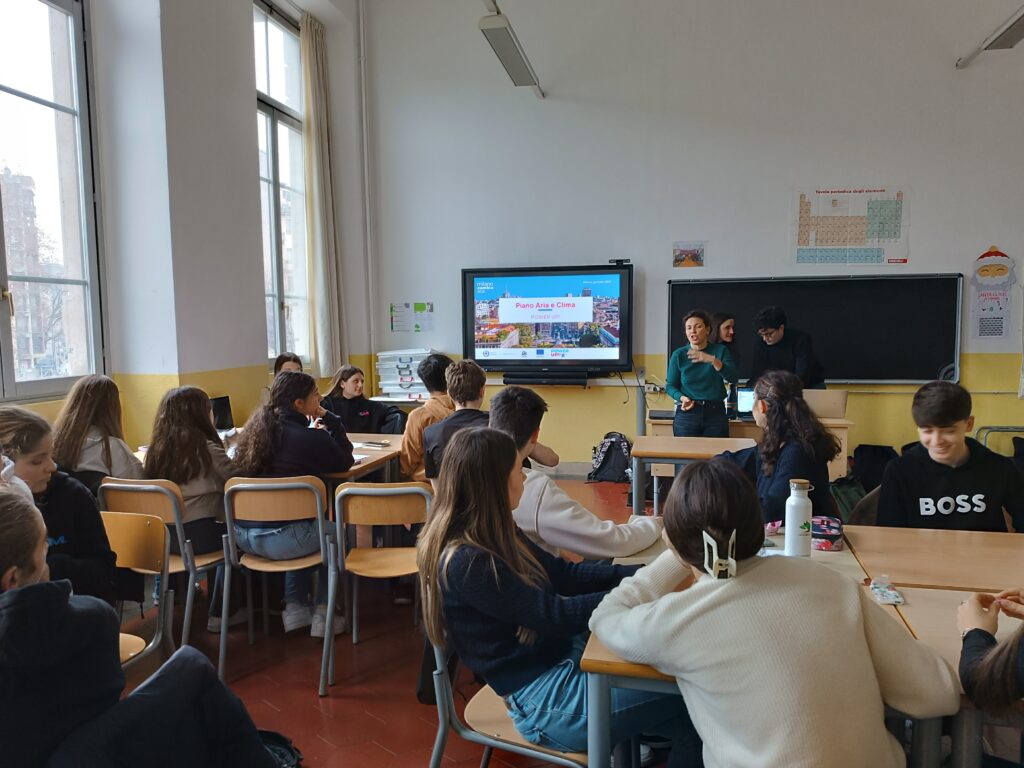
Simulation of the United Nations Economic and Social Council (WP5)
From May 12 to 14, 77 participants—including 51 women and 26 men from four European countries—gathered in Kyustendil, Bulgaria, to take part in a simulation of the United Nations Economic and Social Council (ECOSOC). At the heart of the debate was a crucial question: how can we lead a just transition beyond coal?
Preparing for change
To fully engage in the ECOSOC simulation, students took part in preparatory training sessions led by experts from WWF Bulgaria.
Stella Christova and Raina Popova introduced the concept of a Just Transition, the European Union’s energy policies, and key negotiation strategies.
Their sessions were complemented by a workshop from Sussie Lundegard (WWF Sweden), who guided participants through a collaborative design exercise focused on creating more sustainable cities. It was a hands-on opportunity for young people to reimagine the urban spaces of tomorrow.
Stepping into decision-making roles
During the simulation, over 50 students took on the roles of syndacates, business leaders, policy makers, and youth delegates.
Working in stakeholder groups, they developed shared solutions to ensure a fair energy transition in regions heavily reliant on coal.
Among the proposals that emerged: transforming former coal mines into research and innovation hubs, creating heritage tourism trails, and launching vocational training programmes for professional reskilling.
From ideas to action
The event concluded with a collective debriefing session, where all the proposals were compiled into a Youth Position Paper, a final document that will be presented to institutions in Bulgaria, Slovenia, and Italy.
A symbolic act, but also a political one: because the voices of the younger generation deserve a place wherever the future is being shaped.
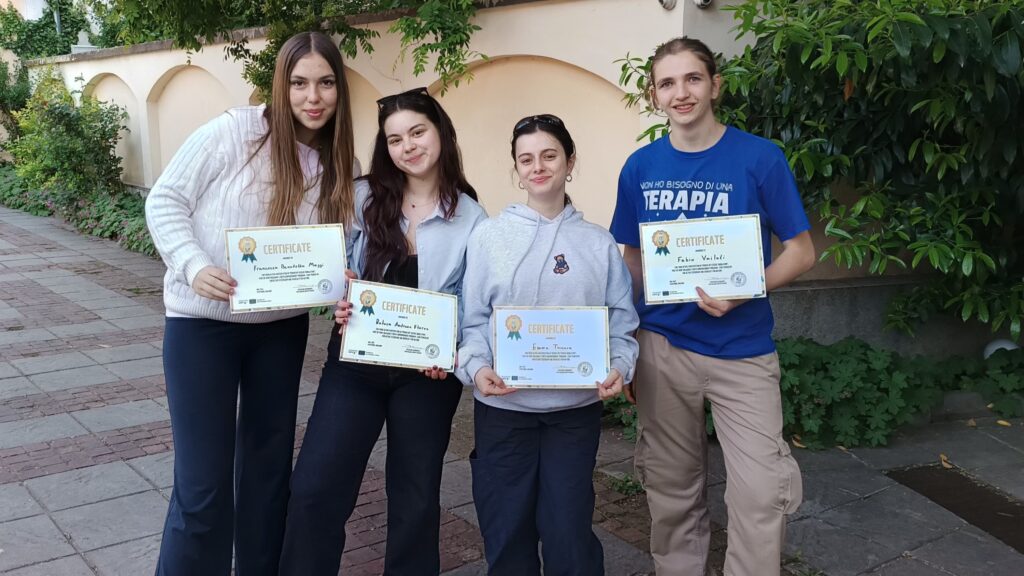
Online Youth Training (WP6)
A total of 139 participants, 80 women and 59 men from six countries, took part in an online training programme designed to strengthen young people’s skills in climate advocacy and active participation.
A format tailored to young learners
Organised by No Excuse Slovenia, the training was delivered in four short, interactive hybrid sessions involving high schools in Slovenia, Italy, and Bulgaria, followed by one main online session with international participation.
During the in-school sessions, students had the chance to explore En-ROADS, a digital climate simulator that illustrates how economic and policy decisions impact global temperature rise. The sessions were guided by Viktor Josa, an En-ROADS Climate Ambassador, who joined online, supported by local facilitators in the classroom.
Ideas from around the world to inspire local action
The highlight of the programme was the international session held on 26 March, which brought together young people and representatives from environmental organisations across several countries.The focus of the session was on sharing successful and concrete sustainability and climate action initiatives. Participants met in small national and international groups, where they could ask questions, exchange experiences, and reflect on the impact and potential of youth-led initiatives.
Sharing personal experiences
“Have you ever taken part in climate-related initiatives? In your experience, what could be improved? What new skills would help you take a more active role?”
These were the questions that guided the final part of the workshop. Young participants reflected on their past experiences, discussed challenges they had faced, and explored what skills they would need to make a greater impact in environmental advocacy.
It was a collaborative and open exchange that highlighted diverse perspectives and reinforced the motivation to take part in collective change.
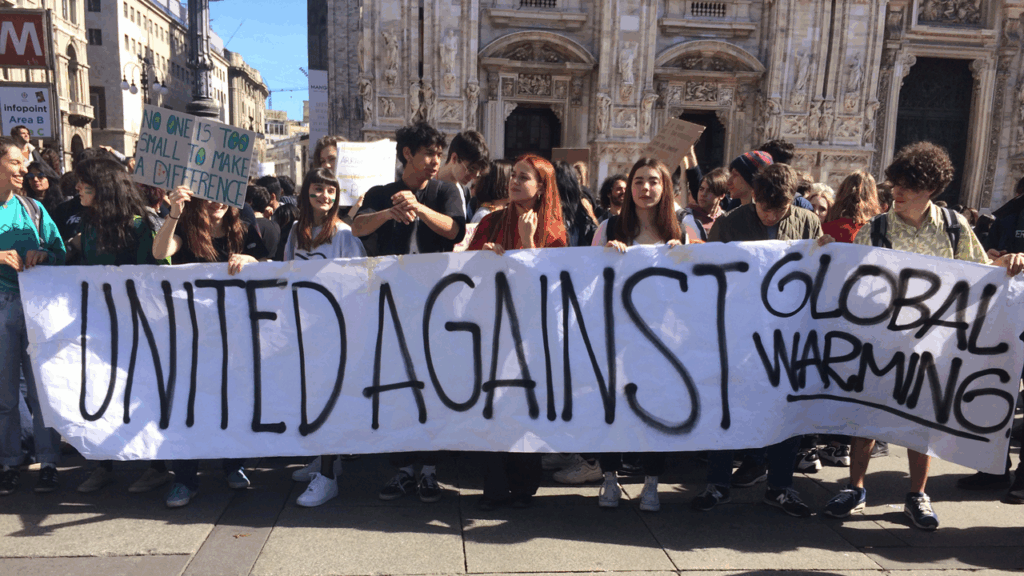
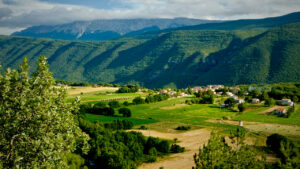
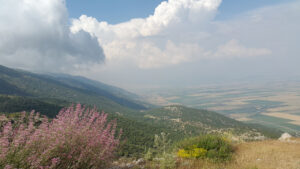
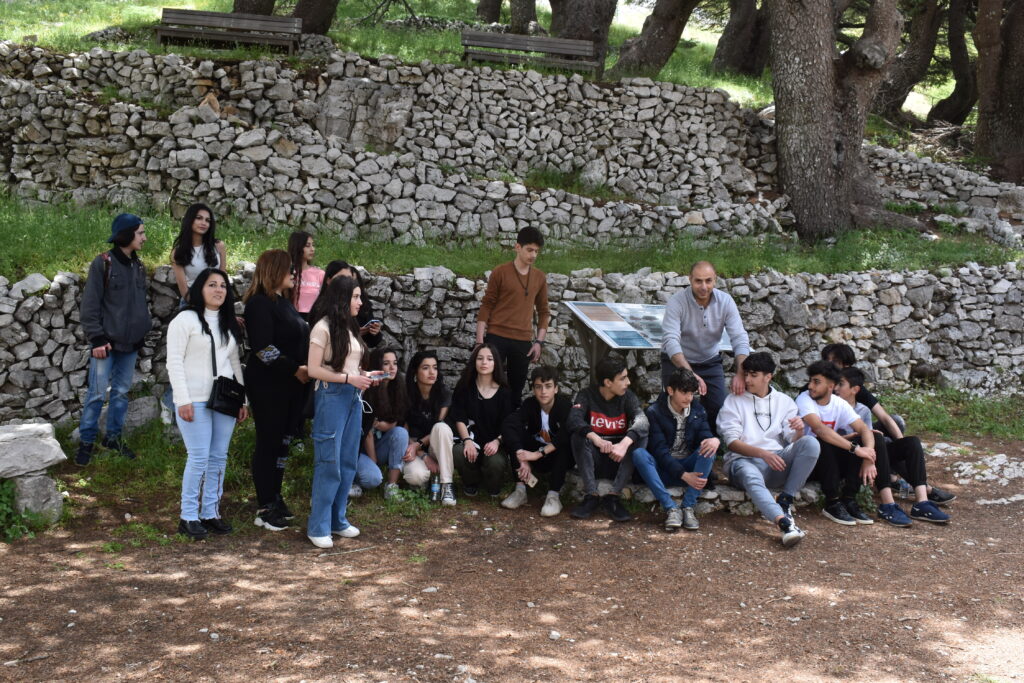
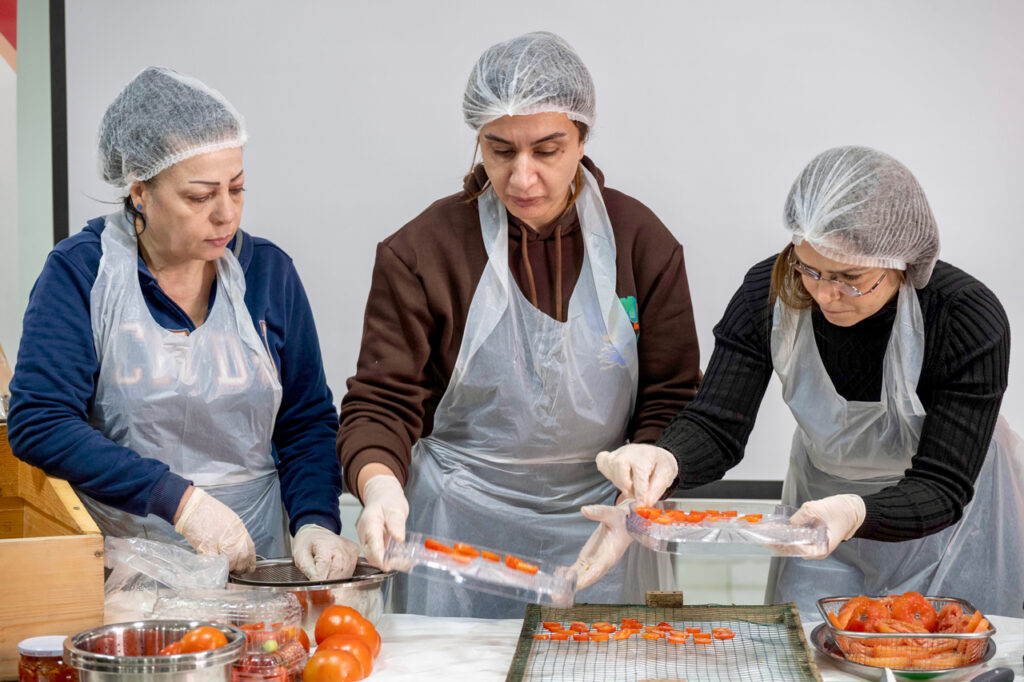


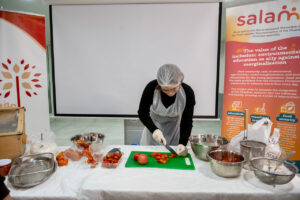
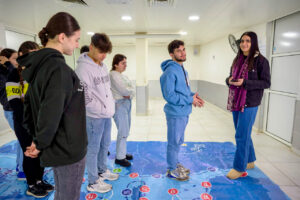 Fadia Morad
Fadia Morad